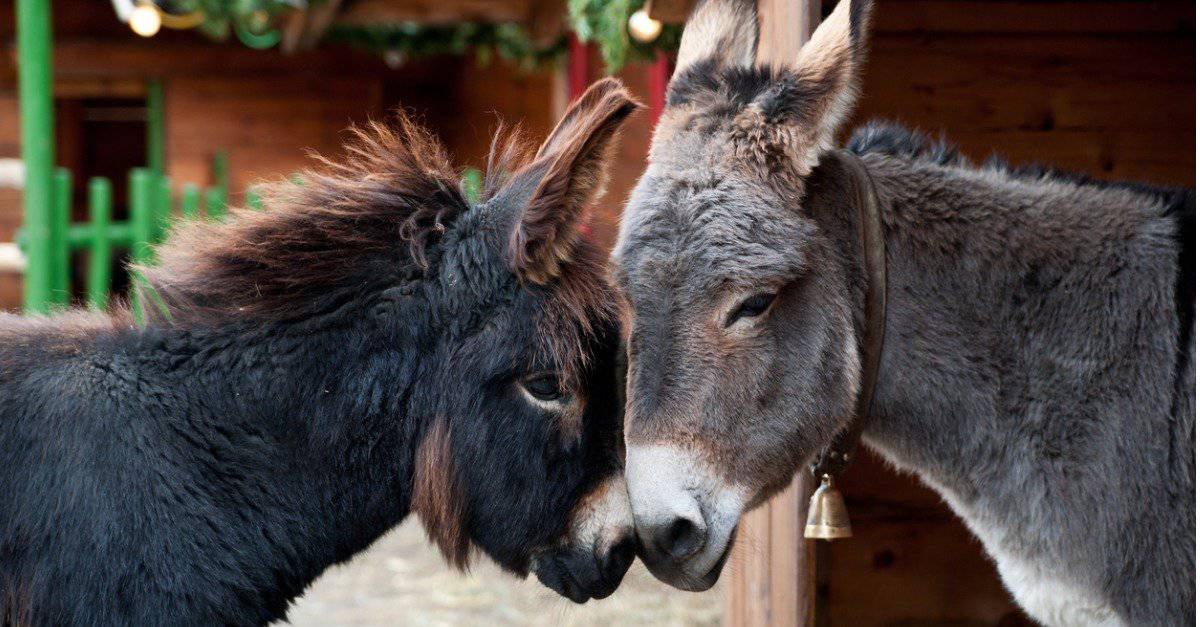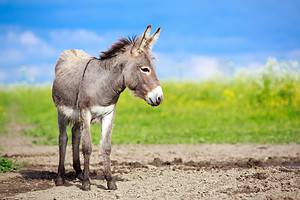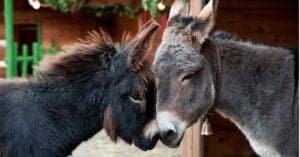Baby donkeys are not only cute, but they’re also well-prepared for adulthood! Did you know donkeys are super smart? Or that they communicate using their own special made-up language? Stock around to learn six awesome baby donkey facts and to see some adorable pictures!
#1: A Baby Donkey is Called a Foal!
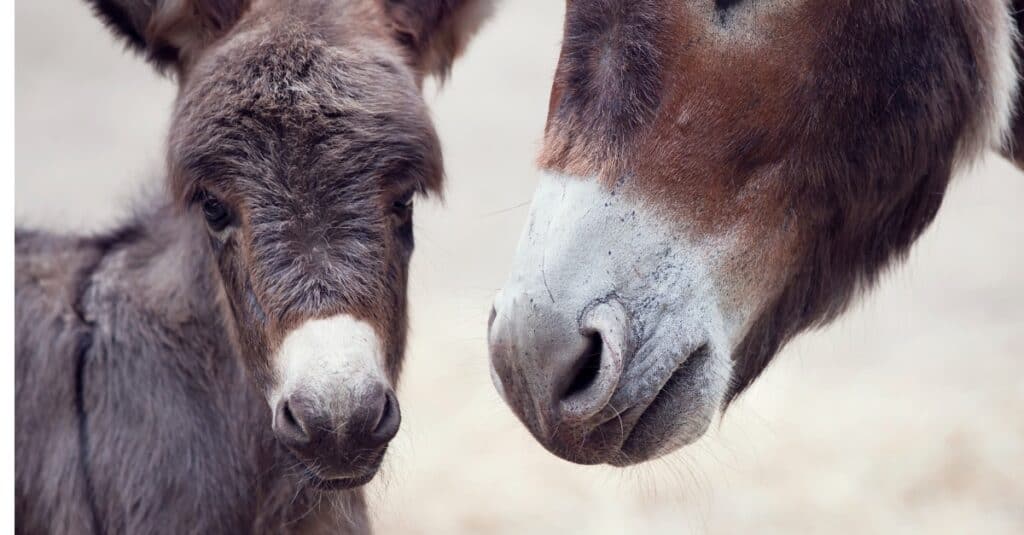
Donkeys are called foals until they’re about a year old.
©iStock.com/Saddako
It doesn’t matter whether the donkey is male or female, a baby donkey is called a foal. They’re only foals until about a year old. After a year, the foals are called yearlings. Donkeys are yearlings for up to two years.
Adult female donkeys are called mares. Male donkeys, on the other hand, can have two separate. A castrated male donkey is called a gelding. An intact male is called a stallion.
#2: Donkey Foals Can Stand Almost Immediately
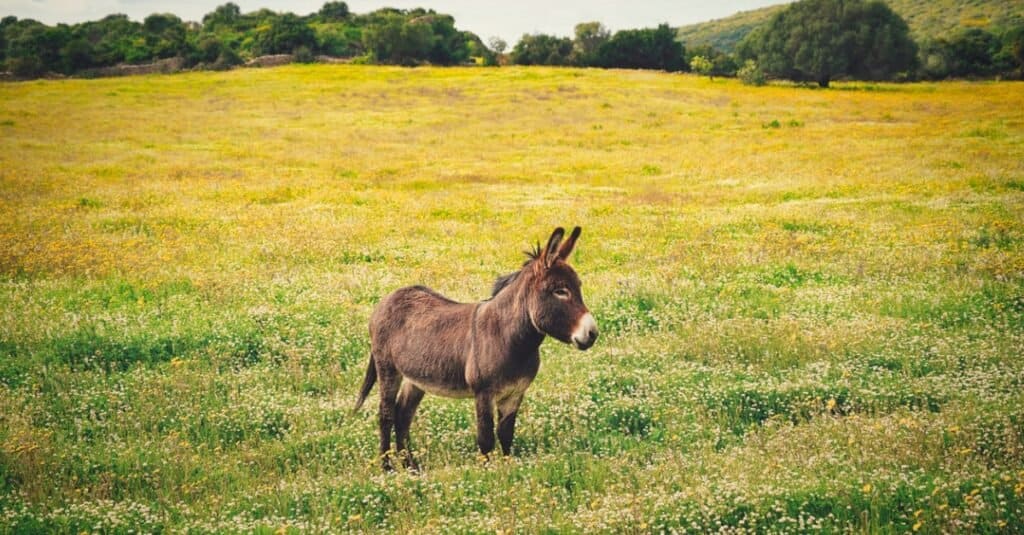
Newborn donkeys stand up around thirty minutes after they’re born.
©iStock.com/lo-chef
A foal can stand and even nurse from their mothers as soon as 30 minutes after birth! However, the babies are extremely unbalanced and very hungry, so this can be challenging for the tiny mammals.
Baby donkeys are fully developed at birth, so they don’t require much in terms of care. However, they can be snatched up by predators. Consequently, mother donkeys prefer to keep their babies close to keep threats at bay.
#3: Baby Donkeys are Very Intelligent
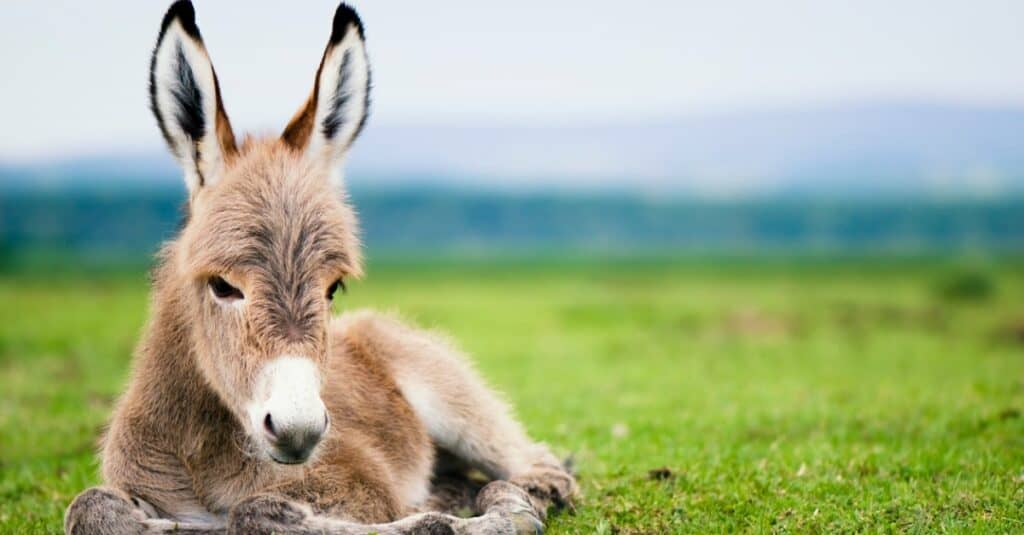
Donkey foals are comparably smart to
dolphins
and dogs!
©iStock.com/miskokordic
When a baby donkey grows up, they can remember old friends and places they’ve been for up to 20 years. Considering that the average lifespan of a donkey is only 35 years, that’s a very long time. However, there is a donkey named Bubbles who celebrated her 62nd birthday in 2021.
Donkeys are also able to problem solve in steps on their own. In fact, scientists say that donkeys are nearly as intelligent as dolphins and dogs. What’s more: they even have their own language. They use a combination of body language and sounds to effectively communicate with one another.
#4: A Donkey Baby’s Ears are Very Helpful
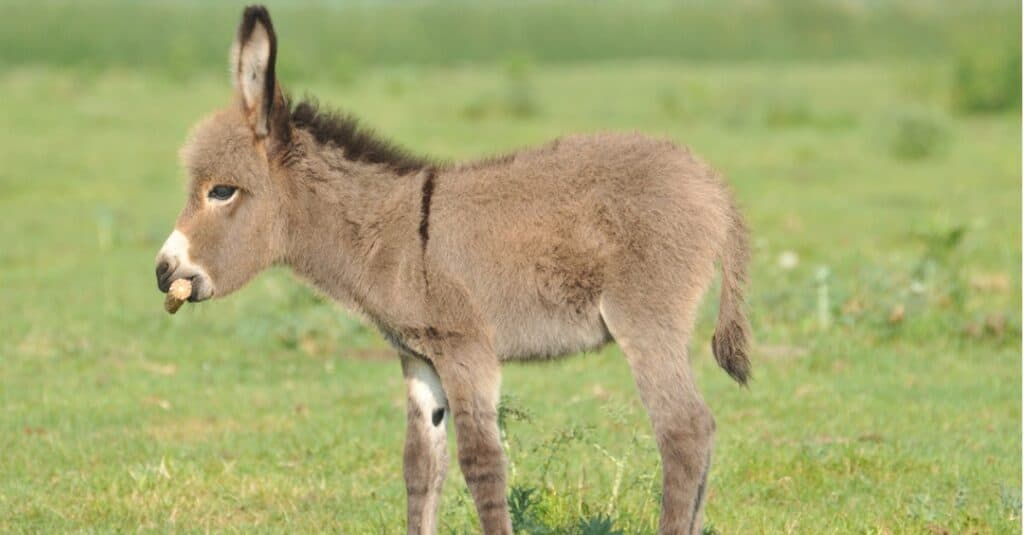
A donkey’s ears can also act as a fan or a fly swatter!
©iStock.com/predrag1
Not only can a baby donkey hear another donkey’s calls from up to 50 miles away, they actually help keep the baby donkey cool in the desert-like conditions they prefer to live in.
Their huge, floppy ears help them stay cool by being used as a fan. Their ears are also helpful for keeping flies, bugs, and other pests away. Talk about hard-working ears!
#5: Donkey Foals Are Extremely Safety Cautious
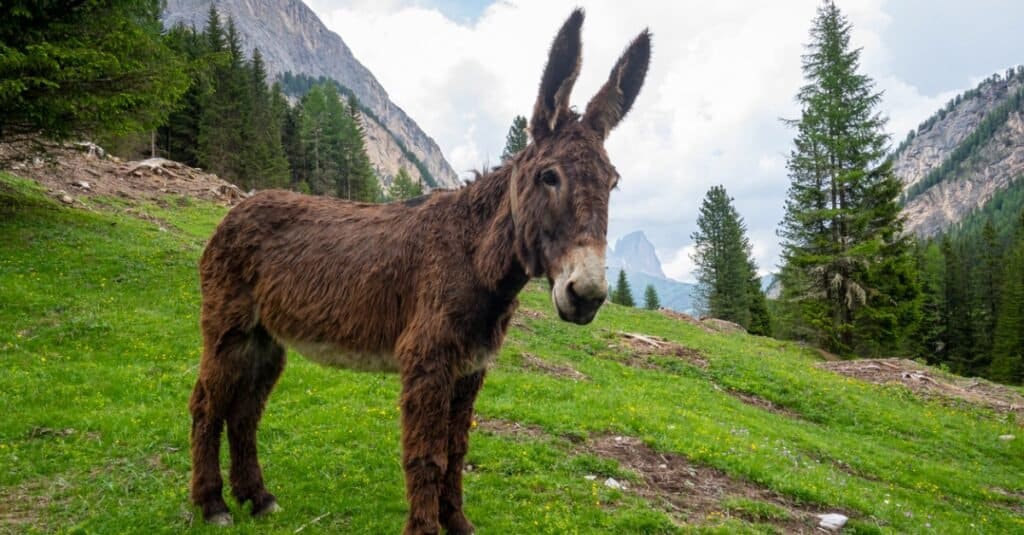
Donkey foals are extremely hesitant to walk into a dangerous situation.
©iStock.com/Jacek Jacobi
Donkeys have the reputation for being stubborn, but this is actually incorrect. Donkeys will not go into a situation if they feel they could be in danger. This is mostly to do with how intelligent they are.
They will literally dig their heels in the ground and not move a muscle if they sense danger of any kind. Unlike horses, they’re able to problem solve and make their own choices about heading into a situation. Donkeys are even considered to be all-terrain animals so if a donkey doesn’t feel it’s safe, it’s wise to follow suit.
#6: Baby Donkeys are Incredibly Social
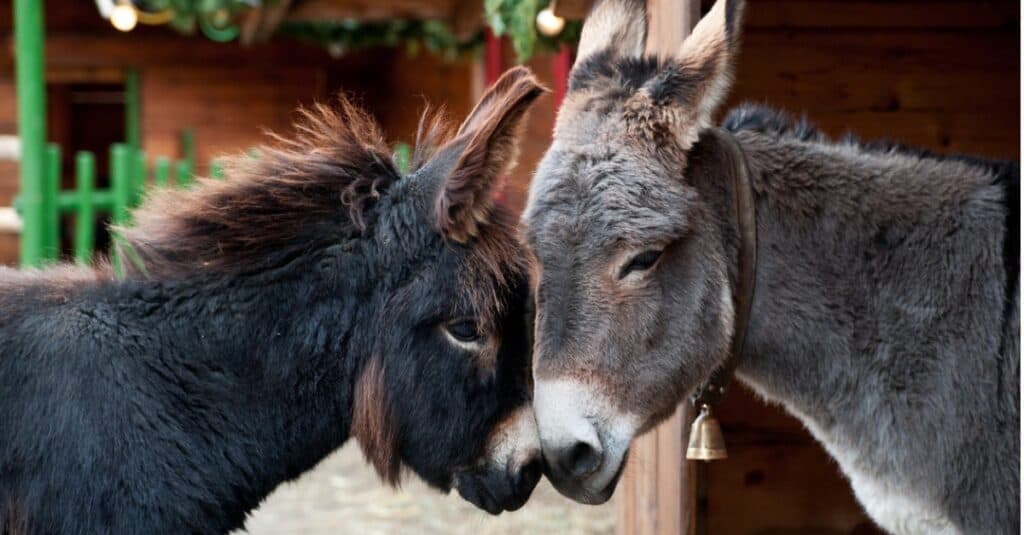
Donkey foals love to make friends!
©iStock.com/tepic
Donkeys are social animals from birth. From the moment they’re born, they prefer to spend their time with their herd. As babies, they begin to build bonds with other herd members that will last a lifetime.
Baby donkeys’ mental health is directly affected by their social environment. If a donkey is left alone for too long, it could develop depression. Depressed donkeys may refuse to eat or drink and act lethargic, which is hazardous to their overall health. When an owner has a lone donkey, it must be housed with goats or other peaceful animals to ensure its overall health and wellness.
Thank you for reading! Have some feedback for us? Contact the AZ Animals editorial team.

